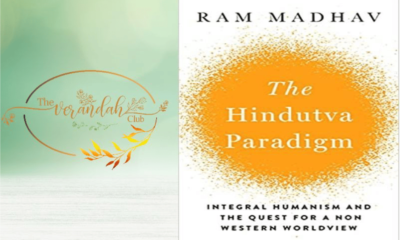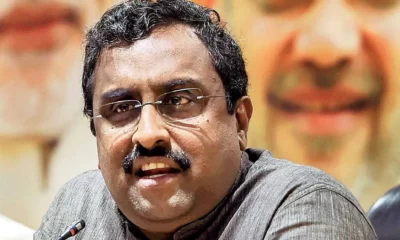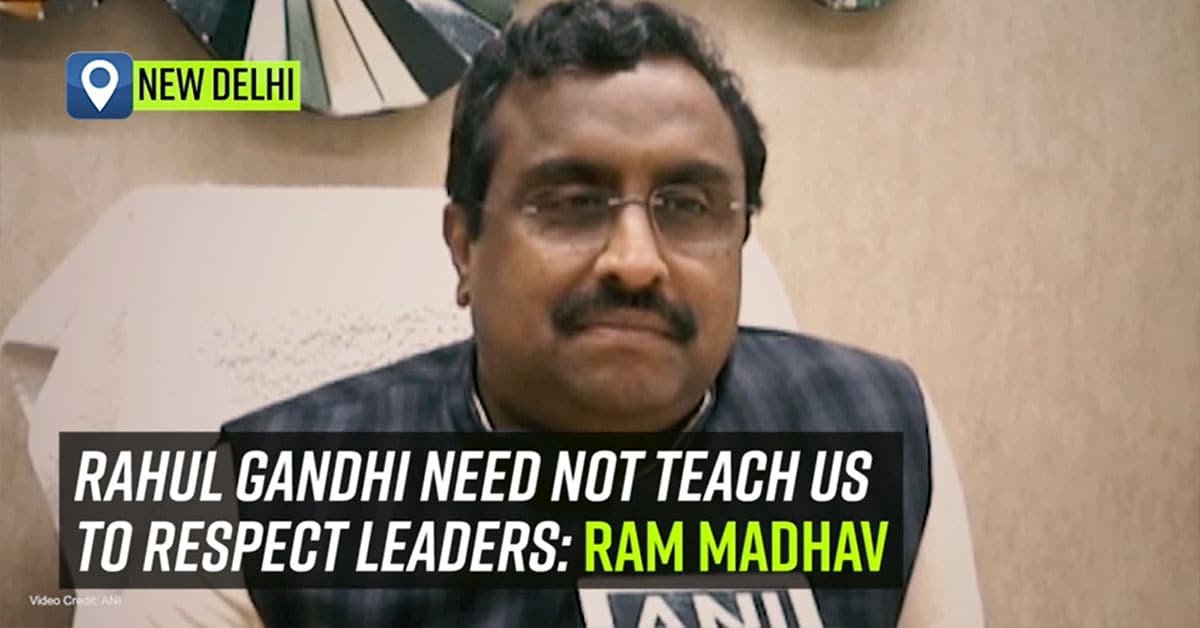
|
Getting your Trinity Audio player ready...
|
In this interview with International Business Times, India, Ram Madhav speaks at length about the Modi government’s response to coronavirus pandemic, migrant exodus, and the communal hatred being spread amid the COVID-19.
India is in the third phase of its nationwide lockdown to contain the deadly coronavirus pandemic. More than 1,500 lives have been lost in India and over 49,000 are infected across the country. To discuss India’s efforts in containing the pandemic, we spoke to the Bharatiya Janata Party (BJP) general secretary, Ram Madhav.
Seen as one of the major national party leaders of the BJP, Ram Madhav explained in detail the Narendra Modi government’s response to the pandemic. He also expressed his views on the migrant crisis and the vilification of Muslims amid the pandemic.
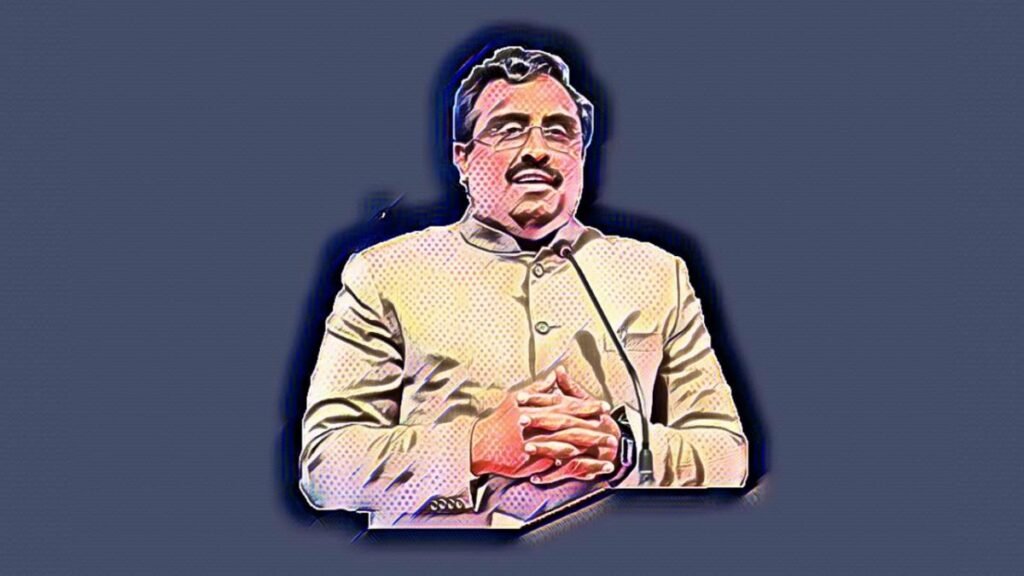
Excerpts from the interview with Ram Madhav, National General Secretary, Bharatiya Janata Party:
IBT: Today, India reported over 3,000 new cases of coronavirus today. Deaths have crossed 1500. So, how is the coronavirus still spreading when everyone is locked inside?
Ram Madhav: As India increases its testing numbers, more cases are coming to light. Number of tests per day have gone up to 75,000 in India. Government plans to increase it to 100,000 per day. But what needs to be underscored is the rate of Coronavirus positive cases compared to other countries. Whereas the rate of confirmed positive cases in countries like US is above 15% out of those tested, in India this rate is around 4.5%. Mortality rates too are very low at 0.8 per million population as against more than 200 per million in countries like the USA and even higher in countries like UK. India has crossed one million mark in testings, which only a few countries have achieved so far. This shows that although daily numbers might look like increasing, the overall spread of the virus has been contained. It is now restricted to around 130 districts, which have been earmarked as Red Zones. In the rest of the country, the spread has been contained or doesn’t exist.
IBT: Did the govt fail to anticipate the exodus of migrants?
A welfare-centric package of Rs. 1.7 lac crore, $2.5B approx., has already been implemented by the government that provided free ration to over 400 million poor people including a majority of migrant workers. A free handout of $8 has been provided to over 300 million women from poor families. LPG cylinders have been provided free to over 60 million poor households. Migrant workers stuck in different places have been provided shelter and food by governments and NGOs. It won’t be an exaggeration to state that food and economic reason were less to do with the flight of a section of the migrant workers. Also to be kept in mind is the fact that India has over 139 million migrant workers. A large number of them didn’t move out. A fraction of them did. It was anxiety and fear of the consequences of Covid that drove a large number of these migrant workers towards their villages. Appreciating their concerns, the government has made arrangements for their travel to native states through free rail services. It was necessary to impose complete lockdown on movement of all people in order to contain the spread of the virus. Result of the lockdown is before everyone to see. India came out least bruised from the virus. As for the inconvenience caused to a section of migrant workers, it was an inevitability in view of the measures to arrest the spread of the virus and Prime Minister Modi sought forgiveness from those who faced inconvenience with folded hands for the same.
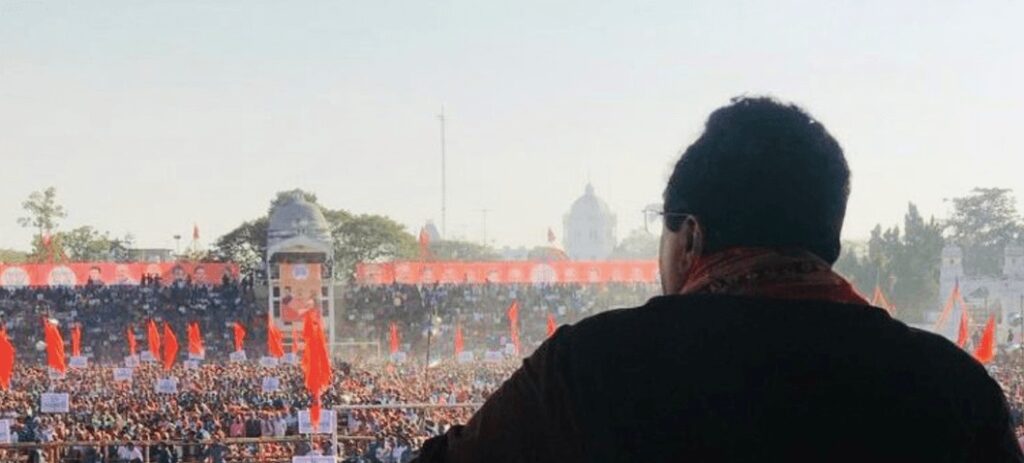
IBT: Many influential & affluent Indians on several occasions were allowed to move despite lockdown. In Haridwar, nearly 1800 Gujaratis were even provided with luxury buses by state govt, while the poor died walking back home. Even Yogi Adityanath govt brought back migrants and students from Delhi in between the lockdown. So, we ask you why India’s lockdown has two sides?
The question is contradictory in itself. There was no discrimination. Measures were taken by different state governments keeping the extent of virus spread in view. Largely, no interstate movement was allowed. On 28-29 April, immediately after the lockdown was announced, Yogi government in UP did allow for a couple of lakhs of migrant workers who had reached its borders to come in and transported them to respective villages. Where some migrant labours were allowed to move, strict quarantines were put in place. Certain relaxations were extended to pilgrims stranded in some places. Rich-poor discourse is misplaced. India brought back a large number of Shia pilgrims from Iran by a special flight and quarantined them in Rajasthan. After the first phase of lockdown ended on 21 April, many states have arranged for movement of students and other stranded people. These were measures based on humanitarian considerations.
IBT: PM Modi has said the virus sees no caste, creed, or religion. Yet, attempts were made to set a narrative that Muslims are spreading the virus. There have been several instances when the Muslims were stopped from selling vegetables, and fruits. We have seen several fake or old videos involving Muslim fruit vendors are being spread. Several BJP leaders have also shared those fake videos. A BJP MLA is openly telling people not to buy vegetables from Muslims. Congress chief Sonia Gandhi has also accused your party of spreading “communal hatred”. What do you have to say about this?
We strongly condemn any type of communal discourse. One key element in our successful fight against the pandemic has been the larger unity and discipline demonstrated by 1.3 billion Indians. We are united in this fight. No question of approving or sanctioning any communal discourse by anybody. We have taken steps to censure such statements purportedly made by members belonging to our party. However, isolated incidents by individuals shouldn’t be exaggerated to propagate about non-existent Islamophobia. India is home to 200 million Muslims and they are as safe as any other Indian is. They have been living in India for more than a millennia. Hence no new phobia is possible. In fact, many who indulge in false propaganda about Islamophobia in India are usual suspects in their Modiphobia. Unfortunately, some well-meaning people too are falling prey to their propaganda.
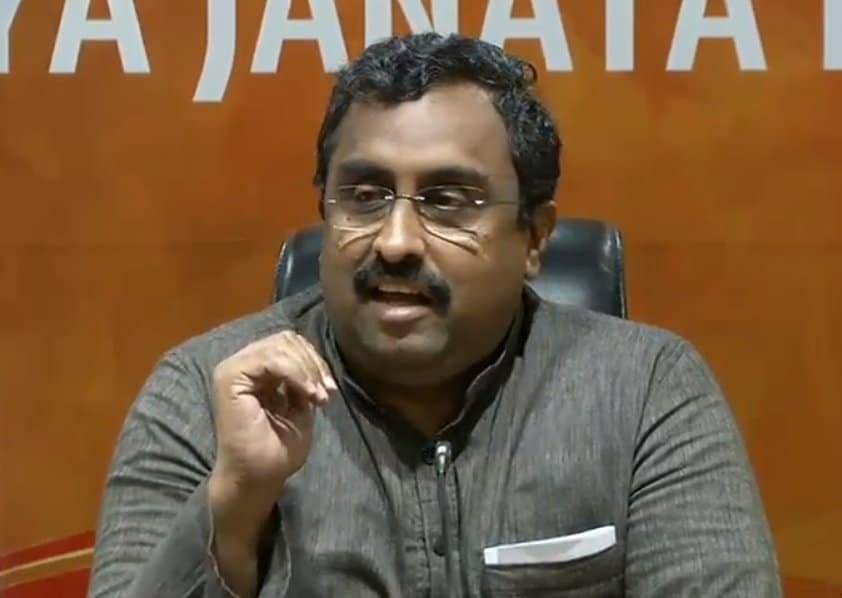
IBT: Arab Intelligentsia, a member of the UAE’s royal family have raised concerns over communal hatred. Princess Hend Al Qassimi yesterday tweeted: “I humbly request the Indian government to take proper actions in order to eradicate the hate spread due to religious-based discrimination”. What would you say about this?
Several handles propagating false information about India are found to be fake or of dubious origin. Prime Minister Modi and our government work for the well-being of 1.3 billion Indians. Our diplomatic corps have been in touch with the ruling establishment in several Gulf countries to contradict fake news, alley their concerns and present the true picture of India. Prime Minister himself has spoken to many heads of the governments in Gulf countries in this regard.
IBT: The virus has disrupted economies globally. India is also hit. For long now, there has been a demand for a relief package for MSMEs. Govt has also hinted it will be announced. So what caused this delay? And when can we expect a stimulus for MSMEs?
The first financial package, directed at welfare-centric measures has been released. The second one will also be announced soon.
IBT: Our first case was in January, and then the cases suddenly rose in March. Lockdown was announced in the last week of March. So, do you see any shortcomings in the Indian government’s handling of coronavirus?
The first case came to light in Kerala on 30 January. The Government of India had constituted a task force immediately in first week of February. Group of Ministers was constituted and screening of passengers from China began in the second week of February. Please remember that the WHO was saying at that time that Covid was not a disease transmitted by the humans. From first week of March, screening of all international passengers began. From second week of March travellers arriving from abroad have been quarantined. There were hardly a couple of hundred cases only at that time in India. PM addressed the nation on 19 March and called for Janta curfew on 22 March. On 24 March he announced first lockdown. All these measures were very timely. The results itself speak for the measures. In the three month period starting from 30 January when the first case was detected, India has seen number of positive cases rise to over 35,000. During the same period cases in US crossed one million and in Spain around 200,000. Italy had over 120,000 cases during that period. It proves the point that the timely actions of Modi government have saved India from a major outbreak of the virus.


